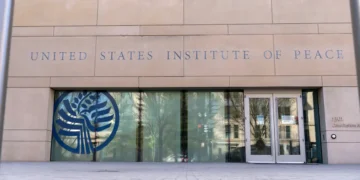March 2, 2025 Story by: Editor
Attorney General Andrea Campbell has joined a coalition of more than 20 state attorneys general in an effort to prevent the Trump administration from shutting down the Consumer Financial Protection Bureau (CFPB).
Earlier this month, the Trump administration directed the CFPB to halt nearly all its operations, effectively crippling the agency, which was established to safeguard consumers following the 2008 financial crisis. Billionaire Elon Musk, representing the Department of Government Efficiency, has been leading efforts against the CFPB.
Since its inception, the agency has faced opposition from conservatives, particularly as it was initially proposed by Sen. Elizabeth Warren and later advanced by President Barack Obama as part of the 2010 financial reform package. Warren has cautioned that dismantling the CFPB would leave the $18 trillion consumer lending industry without critical protections, potentially triggering a financial disaster.
Now, attorneys general across the country are taking legal action against the Trump administration to prevent the CFPB’s shutdown. In an amicus brief filed in Maryland’s U.S. District Court, 23 state AGs argue that eliminating the agency would severely impact consumers and hinder the enforcement of federal consumer protection laws.
The group of AGs is urging the federal court to grant a preliminary injunction.
“The CFPB serves as a beacon for consumer protection and economic justice, working to lower costs, alleviate student debt, and more,” Campbell said in a statement. “They have been an important partner to my office as we pursue consumer protection cases on behalf of Massachusetts residents.
“I continue to support the vital mission of CFPB, especially at a time when families across the country are struggling with sky-high costs of living,” the Massachusetts AG added.
As an independent agency, the CFPB has played a crucial role in ensuring that companies adhere to federal consumer protection laws. It oversees major financial institutions, including banks, credit card companies, lenders, and mortgage servicers.
According to the AGs, the agency has helped homeowners avoid foreclosure, curbed excessive bank fees, and returned over $20 billion to consumers.
In the legal filing, the coalition contends that dismantling the CFPB would make it harder for consumers to report fraud and deceptive practices. They also warn that shutting down the agency would significantly weaken oversight of large financial institutions, putting consumers at greater risk.
The AGs further argue that reduced regulatory oversight could lead financial institutions to relax compliance measures, similar to the period preceding the Great Recession.
“While States’ roles in consumer protection and financial regulation are robust and diverse, there are several forms of irreparable harm that many States and state residents will suffer as a result of defendants’ actions if relief is not granted,” the AGs wrote in the brief.
“First, CFPB has long been providing statutorily mandated services that benefit the States’ residents and support for the States’ own enforcement efforts,” they added. “Second, States have benefited from the CFPB’s supervision of compliance with consumer-protection laws by very large banks. Third, many States have benefited as well as from the CFPB’s collaboration in a number of areas of joint supervision and enforcement. The sudden withdrawal of these CFPB services, supervision and collaborative assistance will thus inflict immediate harm on States and their residents.”
The CFPB’s complaint system has handled approximately 25,000 consumer grievances each week, according to the brief.
However, with the agency’s shutdown, these referrals have been left “in limbo,” the AGs wrote.
“Defendants’ actions to dismantle the CFPB have already begun to harm the States by suddenly increasing the burden on them to protect their residents through both enforcement and supervision of the financial industry,” the AGs stated.
“The loss of CFPB’s partnership has concrete and far-reaching implications: from collaborating on supervisory examinations, to sharing of complaints and trend data, to providing training, to partnering on joint investigations and litigations, the CFPB has been a force multiplier for States’ consumer-protection efforts,” they added. “Absent a preliminary injunction to prevent the sudden loss of these significant contributions, the States will be unexpectedly stretched.”
The attorneys general from Arizona, California, Colorado, Connecticut, Delaware, Hawaii, Illinois, Maine, Maryland, Michigan, Minnesota, Nevada, New Jersey, New Mexico, New York, North Carolina, Oregon, Rhode Island, Vermont, Washington, Wisconsin, and Washington, D.C., have also joined the brief. Source: Boston Herald
















